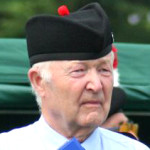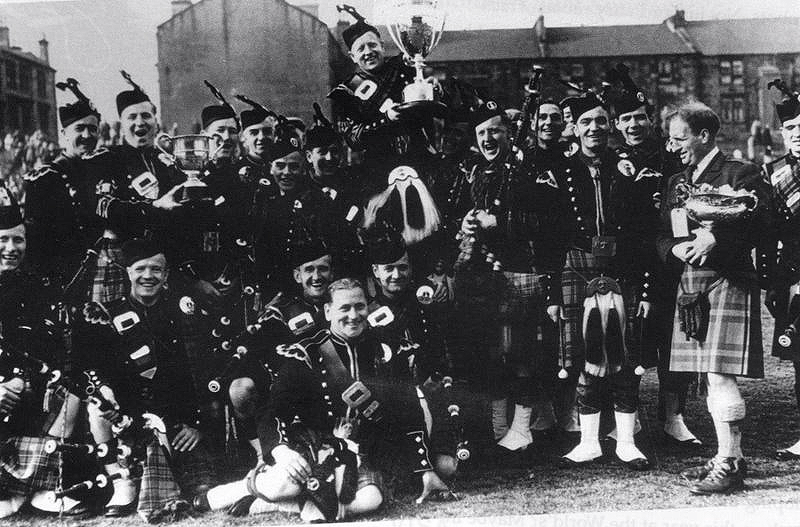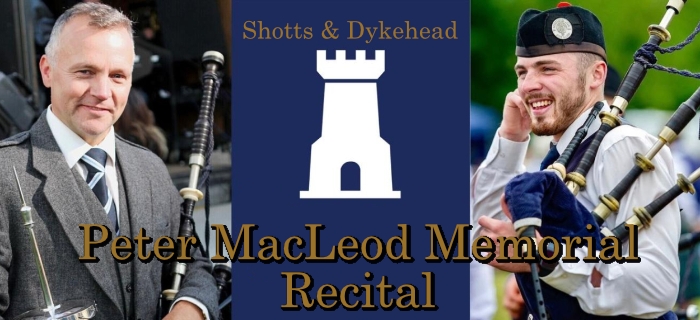 Writer Alistair Aitken (left) continues with his detailed feature on this important pillar of the piping/ pipe band establishment by firstly listing all the Army School Directors. Read the first part of his article here.
Writer Alistair Aitken (left) continues with his detailed feature on this important pillar of the piping/ pipe band establishment by firstly listing all the Army School Directors. Read the first part of his article here.
Army Class Directors
- Pipe Major John MacDonald, ex Cameron Highlanders 1910-1914
- Pipe Major John Grant, ex Seaforth Highlanders 1914-1918
- Pipe Major William Ross MBE, ex Scots Guards 1919-1958

Directors of Army Bagpipe Music
- Captain John A MacLellan MBE, Queens Own Highlanders 1968-1976
- Captain Andrew Pitkeathly, Argyll& Sutherland Highlanders 1976-1981
- Major John M Allan MBE, Queens Own Highlanders 1981-1990
- Major Gavin N M Stoddart MBE BEM, Royal Highland Fusiliers 1990-2003
- Captain Stuart D Samson, The Highlanders 2003-2008
- Major Steven Small, SCOTS 2008-date
ARMY REGIMENTS AND PIPE BANDS
The main purpose of preparing this historical document was to add to the History Section of the Royal Scottish Pipe Band Association (RSPBA) website information about one of the main sectors which has influenced piping and pipe band development, and which has had a significant impact on the RSPBA itself.
It has been the tradition for all Scottish regiments to have a pipe band, some with a band in each or more than one battalion. In researching the document, however, it has proved impossible to identify all the Army pipe bands which have existed over the years; and it has also proved difficult to elicit detailed information about those bands it has been possible to identify. As a consequence this document has evolved more as a historical record of Scottish regiments and how they have been restructured over the years. Where possible, information about their respective pipe band/s has been added. It is hoped, however, that overall it provides a framework which will encourage others to supplement the information progressively, to achieve a more comprehensive historical record.
The first Army band that we know of is the Drums and Pipes of The Gordon Highlanders. The format of the name, which is possibly unique in the world of pipe bands, reflects the fact that, before the emergence of piping, drummers were important in early military regiments for marching and command purposes . The traditional role of Drummers and Buglers was to send signals and keep order by the beat of the drum. By the time of the World War 1, drummers were also used as runners to take messages to different parts of their Battalion, and to act as stretcher-bearers. There is evidence of drummers having a rank and pay structure in the Gordon Highlanders in the late 1700s, but, as I have written, it was not until the mid-1800s that the pipes were recognised officially in Scottish Regiments, a recognition which led directly to the formation of pipe bands. Since that time there has been much reorganisation and restructuring of Scottish regiments by successive Governments.
While it has proved difficult to identify a great deal of information about the individual Army bands, it is clear that they have produced many pipers and drummers who have made their mark as solo players and in bands or in other ways, both whilst in the Army and in civilian life afterwards. The names are wide-ranging and individuals such as Willie Ross, John MacLellan, Donald Shaw Ramsay, Iain McLeod, John MacAllister (Gordon Highlanders), Angus MacDonald, Alasdair Gillies, Gordon Walker, Donald Mackay, Bob Montgomery, Adrian Hoy and Mick O’Neill are only a few who readily spring to mind.

It is also important to note that, while many Army bands were only able to compete in SPBA/RSPBA competitions when their regimental duties allowed, a few, over the years, were able to reach and sustain Grade 1 status for a significant period. This not only reflects the quality of Army players, but also the dedication of these players to furthering their musical skills when their priorities necessarily had to be devoted to being active soldiers. This deserves to be recognised.
These high standards are also reflected in the fact that individuals like Donald Shaw Ramsay, John MacAllister and Iain McLeod subsequently progressed to becoming Pipe Majors of civilian bands which won the coveted World Pipe Band Champions title. Bob Montgomery also progressed to being Leading Drummer of a Grade 1 World Pipe Band Champion as well as winner on two occasions of the World Solo Drumming title. More recently Adrian Hoy and Mick O’Neill both became Leading Drummers of Grade 1 civilian bands. Outwith the competition scene, Army bands have always had a very prominent role in Royal, Armed Forces, Government and other major public events, when their musicianship, marching and smart dress have been showcased to the highest standards. Probably the majority of Army Pipe Bands have at one time or other also featured in the annual Royal Edinburgh Military Tattoo.
• Next: A look at individual regiments and their pipes & drums.
















I am looking for Alan McElligott, who was a drummer in the 42nd Battalion Army pipe band, around 1949-1953 Maryborough qld, then he did his national service training. Any information or where I could find it I would be very grateful.